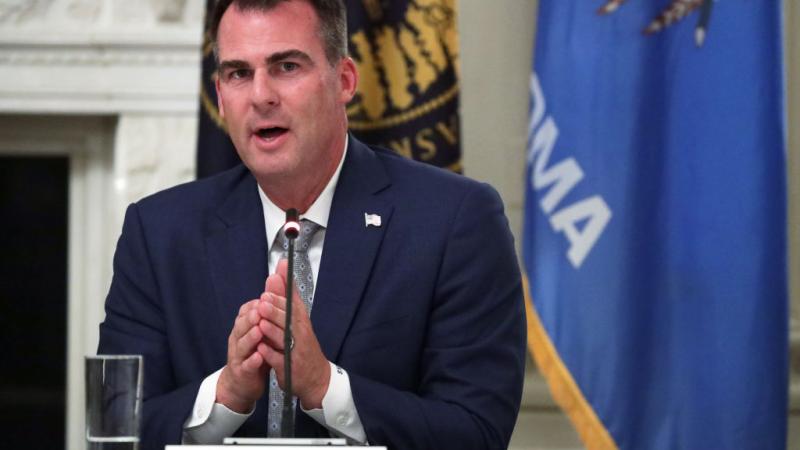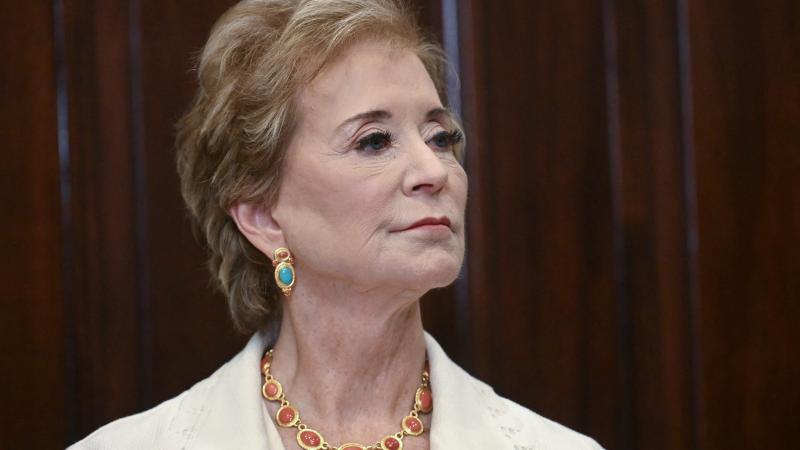Law school accreditor trying to circumvent SCOTUS with proposed admissions rules: law professors
"Underrepresented groups" become "all persons" but require targeting of 14 "identity characteristics," and schools can't cite SCOTUS to get out of complying, working group says. Congress should revoke ABA's "near-monopoly," prof says.
The Supreme Court told public and private universities last year they cannot use race in admissions unless applicants discuss "how race affected" their lives and it's "concretely tied to a quality of character or unique ability" they can contribute to campus.
If that didn't give federally funded law schools enough wiggle room to continue their race-conscious practices through more subtle means, their accreditor is giving them an incentive to double down on appearance-based admissions and hiring.
An American Bar Association working group approved revisions to Standard 206 to scale back the red-flag language of "diversity and inclusion" and "underrepresented groups" and rebrand the accreditation requirement as "access to legal education and the profession" for "all persons."
Fourteen types of persons are named specifically. Law schools "shall" take "concrete actions" to show their commitment to access for those whose "identity characteristics … have led to disadvantages in or exclusion from the legal profession," under the revised language.
It adds 11 new identities to gender, race and ethnicity, the underrepresented groups from the old version: color, religion, national origin, gender identity, gender expression, sexual orientation, age, disability, military status, Native American tribal citizenship and socioeconomic background.
Similar changes were made to the section on faculty and staff, which unlike the admissions section still includes "commitment to diversity and inclusion."
The standards committee asked the admissions council to approve the revisions in a Feb. 21 memo, which said they were prompted by last year's Supreme Court victory for Students for Fair Admissions over Harvard and the University of North Carolina.
The council voted the next day at its Louisiana meeting to hold off approving the revisions, with Vice Chair Daniel Thies saying it was "suggested" they let outside counsel review the wording in light of the new SCOTUS precedent, Law.com reported.
George Washington University law professor John Banzhaf blasted the revisions as a "rebuff" to SCOTUS that would "mandate only 'woke' diversity."
This ignores "what may be the most important form of discrimination by law schools," the veteran public-health crusader wrote in his newsletter Monday: "reluctance if not outright refusal to hire law professors who are not liberals."
Banzhaf noted a 2022 National Jurist study rated nearly nine in 10 law schools "liberal," with very liberal outnumbering very conservative, conservative and moderate schools combined. He told Just the News he suspects this imbalance is related to the new generation of "wuss" lawyers he has accused law schools of churning out.
"The ABA seems to be suggesting that law schools find creative ways to evade the Supreme Court's ruling in the SFFA case," Cornell law professor William Jacobson, who runs the Legal Insurrection website, told Just the News.
"This reflects how the ABA is abusing its accreditation power to push its social agenda," he wrote, calling on Congress to "strip the ABA of its accreditation near-monopoly" given that it "no longer represents the broader legal community unlike decades ago when it was handed this power."
The Standard 206 revision also includes a new provision that could exacerbate the use of so-called civility policies to chill speech of both employees and students, a top concern of academic freedom groups such as the Foundation for Individual Rights and Expression.
It requires law schools to "adopt, publish, and adhere to a policy that promotes professionalism, mutual respect, and belonging for everyone in the law school community."
FIRE Director of Policy Reform Laura Beltz told Just the News it "may not necessarily infringe on free speech" if limited to "aspirational standards."
The risk, however, is law schools implementing "policies that require students to conform their speech to administrators' subjective standards" to comply with the provision, "putting controversial or unpopular expressional at risk of punishment," she said.
ABA critics sang a different tune in early February when its House of Delegates approved new policy requirements to protect academic freedom and freedom of expression, brought forth by the same Section of Legal Education and Admissions to the Bar.
The new Standard 208 requires law schools to protect the communication of "ideas that may be controversial or unpopular, including through robust debate, demonstrations, or protests," while punishing "disruptive conduct" that prevents or "substantially" interferes with classes, meetings, public events and other "approved activities."
One of the best-known disruptions involved a Stanford diversity dean helping students shut down a Federalist Society event with conservative federal appellate judge Kyle Duncan a year ago. While DeanTirien Steinbach resigned, Stanford claimed she was trying to "de-escalate" by taking over the podium and telling Duncan "your work has caused harm."
Standard 208 appears to directly undercut the revised Standard 206 by specifying that "[c]oncerns about civility and mutual respect ... do not justify barring discussion of ideas because they are controversial or even offensive or disagreeable to some."
The ABA working group modified two interpretations of Standard 206 that could force law schools to make a Hobson's choice: accreditation probes or discrimination lawsuits by rejected applicants under the new SCOTUS precedent.
"Any law that purports to prohibit consideration" of a listed identity characteristic "is not a justification for a school’s non-compliance with Standard 206," and they must find "means other than those prohibited by law" to demonstrate their commitment, the first says.
A new sentence says compliance does not require representation for "every identity category" among faculty and staff.
"That provision is in the current Interpretation and has never required schools to violate the law," Bill Adams, managing director of the ABA section, wrote in a statement to Just the News that does not acknowledge the revision includes 11 new identities.
"However, schools should not claim a legal provision as an excuse for noncompliance if they can comply with the Standard without violating the Constitutional or Statutory provision they assert as a defense," he said, using the wording that "any law" replaced. "Schools should not do what is prohibited but instead take actions to comply that are not prohibited."
The second modified interpretation tells schools the ABA won't specify the "concrete actions" they must take to comply but rather will evaluate "the totality of the law school's actions." It removes the end of the original sentence: "and the results achieved."
It said they can "typically" show their commitment to "full educational opportunities" for the 14 identities through "efforts aimed at determining the potential of these applicants through the admission process, targeted recruitment efforts, [and] programs aimed at meeting the academic and financial needs of many of these students."
While the end of the interpretation swaps out "favorable environment for the students from underrepresented groups" for "climate of inclusivity for everyone in the law school community," the beginning still emphasizes the benefits of "full opportunities" for underrepresented groups.
"Nothing in the proposed standard requires schools to admit someone because of a characteristic listed in the standard nor to give any preferential treatment to someone with one of these characteristics," ABA Director of Entities and Sections Priscilla Totten told Just the News when asked how its vague directions help law schools comply.
"A number of states have had affirmative action prohibitions, and no school has been required to violate any of those prohibitions," she said.
A third, new interpretation specifies that religious law schools can adopt admission and employment policies "that directly relate" to their religious missions as long as they notify applicants before they join the community. It says the new professionalism requirement "is not in conflict" with these religious protections.
The Facts Inside Our Reporter's Notebook
Videos
Links
- they can't use race in admissions unless applicants discuss "how race affected
- Standard 206
- Feb. 21 memo
- Law.com reported
- veteran public-health crusader
- National Jurist study rated
- new generation of "wuss" lawyers
- Legal Insurrection
- civility policies to chill speech
- House of Delegates approved new policy requirements
- Standard 208
- Stanford diversity dean helping students shut down
- Stanford claimed she was trying to "de-escalate"
















